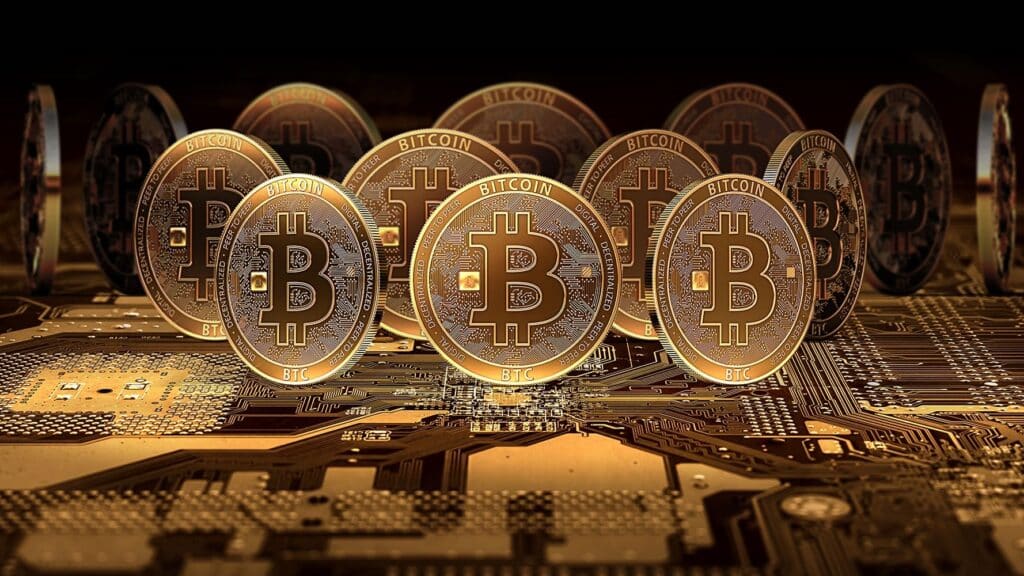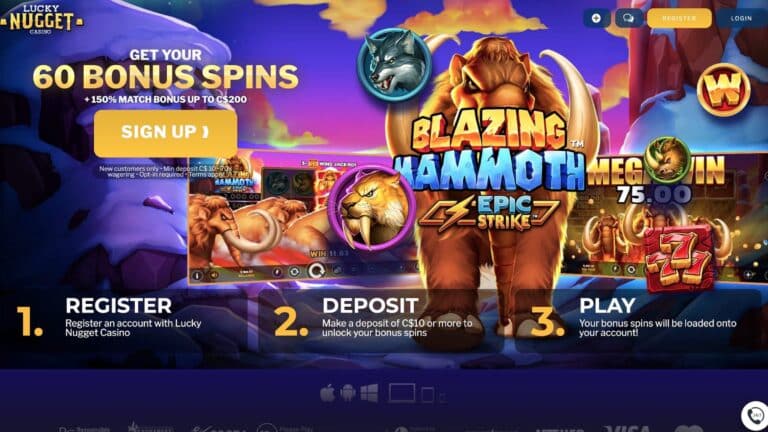Non-Fungible Tokens (NFTs) are revolutionizing numerous sectors, and the online gambling world is no exception, presenting both seasoned and new gamblers with innovative opportunities and challenges.
Understanding NFTs and Their Utility in Online Gambling
To understand the impact of NFTs on online gambling, it's crucial to first define what NFTs are and how they function. NFTs are unique digital assets representing ownership of items like art, collectibles, or in-game assets. Unlike cryptocurrencies, which are fungible and interchangeable, each NFT is unique and irreplaceable, with its ownership and authenticity verifiable on a blockchain, a decentralized digital ledger. This inherent uniqueness and verifiable scarcity make NFTs valuable in digital contexts, extending their application into the realm of online gambling.
In the context of online gambling, NFTs can represent a wide array of digital assets. These can include unique in-game items, virtual land in metaverse casinos, or even tickets to exclusive gambling events. The key characteristic is that each NFT provides a provably unique digital identity and ownership record for these items, enhancing transparency and trust in online gambling platforms.
Benefits of NFTs in Online Gambling for Players
For players, the integration of NFTs into online gambling platforms brings several potential advantages, primarily centered around enhanced ownership, transparency, and new forms of engagement.
True Ownership of In-Game Assets: Traditionally, in online gambling, digital assets won or purchased within a game are typically controlled by the platform provider. NFTs shift this paradigm by granting players verifiable ownership of these assets. When a player wins an NFT-based asset, such as a unique skin in a virtual slot game or a collectible card in a poker game, they truly own it. This ownership is recorded on the blockchain, and players can control these assets outside of the casino's ecosystem. They can trade, sell, or transfer these NFTs on various NFT marketplaces, providing a level of freedom and control previously unavailable in traditional online gambling.
Enhanced Transparency and Provable Fairness: The use of blockchain technology, which underpins NFTs, can significantly enhance the transparency and fairness of online gambling operations. Blockchain's immutable ledger can be used to verify game outcomes and ensure that the odds are fair and not manipulated. Smart contracts, self-executing contracts with the terms of the agreement directly written into code, can automate payouts and ensure that winnings are distributed fairly and promptly. This transparency can build trust among players, addressing long-standing concerns about the integrity of online gambling platforms.
New Forms of Player Engagement and Rewards: NFTs can introduce new and engaging ways for players to interact with online gambling platforms. Casinos can use NFTs to offer loyalty rewards, VIP access, or exclusive game features. For example, a casino might issue NFTs that grant holders access to high-roller tables or special tournaments. NFTs can also be integrated into gamified casino experiences, where players can earn NFTs as they progress through games or achieve certain milestones. These NFTs could unlock further in-game benefits, exclusive content, or even be staked to earn passive income, adding layers of engagement beyond traditional win/lose scenarios.
Benefits of NFTs in Online Gambling for Operators
Online gambling operators also stand to gain significantly from integrating NFTs into their platforms. These benefits include attracting new demographics, creating new revenue streams, and fostering greater player loyalty.
Attracting a New Demographic of Tech-Savvy Players: The integration of NFTs can make online gambling platforms more appealing to a younger, tech-savvy demographic that is already familiar with and interested in cryptocurrencies and blockchain technology. By adopting NFTs, online casinos can position themselves at the forefront of technological innovation, attracting players who value digital ownership and transparency. This can lead to an expansion of the customer base and increased market share.
Creating New Revenue Streams: NFTs offer online gambling operators opportunities to generate new revenue streams beyond traditional gambling activities. Casinos can create and sell unique NFT-based assets, such as limited-edition in-game items or virtual real estate within their metaverse casinos. These NFTs can be sold directly to players or through NFT marketplaces, generating additional income. Furthermore, operators can earn royalties from secondary sales of these NFTs on marketplaces, creating a continuous revenue stream from the initial issuance of the digital assets.
Increased Player Loyalty and Retention: NFTs can be used to enhance player loyalty programs and improve retention rates. By rewarding players with exclusive NFTs for their activity and engagement, casinos can create a sense of exclusivity and value that traditional loyalty points may lack. These NFTs, representing unique digital collectibles or access to VIP experiences, can incentivize players to remain active on the platform and build a stronger connection with the casino brand. The ability to own and trade these assets also adds an element of investment and long-term value for players, further encouraging loyalty.
Risks and Challenges of NFTs in Online Gambling
Despite the potential benefits, the integration of NFTs into online gambling also presents several risks and challenges that need careful consideration. These include regulatory uncertainties, volatility and speculative risks, and concerns around accessibility and user experience.
Regulatory Uncertainty and Compliance Issues: The regulatory landscape surrounding NFTs and cryptocurrencies is still evolving, and the application of these technologies in online gambling adds further complexity. Regulators worldwide are grappling with how to classify and regulate NFTs, and specific guidelines for their use in gambling are often lacking or unclear. Online gambling operators adopting NFTs must navigate this uncertain regulatory environment to ensure compliance with existing gambling laws and potential future regulations. This includes considerations around licensing, taxation, and responsible gambling measures in the context of NFT-based gambling activities.
Volatility and Speculative Risks: The value of NFTs, like cryptocurrencies, can be highly volatile and subject to market speculation. This volatility poses risks for both players and operators. Players holding NFT assets in online gambling platforms could see significant fluctuations in their value, impacting the perceived worth of their winnings or investments. For operators, the fluctuating value of NFT-based assets could create accounting and risk management challenges. Furthermore, the speculative nature of the NFT market can attract individuals primarily interested in quick profits rather than genuine gambling entertainment, potentially altering the dynamics of the online gambling environment.
Accessibility and User Experience Concerns: While appealing to tech-savvy users, the technology underlying NFTs and cryptocurrencies can be complex and potentially daunting for the average gambler. Setting up cryptocurrency wallets, understanding blockchain transactions, and interacting with NFT marketplaces can create a barrier to entry for less technologically inclined players. Online gambling platforms integrating NFTs need to prioritize user-friendly interfaces and provide clear educational resources to ensure that all players, regardless of their technical expertise, can easily participate in NFT-based gambling activities. Simplifying the user experience is crucial for widespread adoption.
Use Cases of NFTs in Online Gambling
NFTs are beginning to be utilized in various innovative ways within the online gambling sector, showcasing their versatility and potential to transform traditional gambling experiences.
NFT-Based Collectibles and Rewards: Online casinos are issuing NFTs as digital collectibles that players can earn, trade, and showcase. These collectibles can range from digital art pieces to virtual items with in-game utility. For example, a player might receive a limited-edition NFT for achieving a high score in a slot game or winning a poker tournament. These NFTs can serve as status symbols, rewards for loyalty, or simply valuable digital assets that players can trade on NFT marketplaces. This adds a collectible dimension to online gambling, enhancing player engagement and providing tangible rewards beyond monetary winnings.
NFTs for Virtual Land and Metaverse Casinos: The metaverse is emerging as a new frontier for online gambling, and NFTs are playing a crucial role in defining ownership within these virtual worlds. Metaverse casinos are utilizing NFTs to represent virtual land parcels, allowing players to purchase and own digital real estate within these casinos. Owning virtual land NFTs can provide various benefits, such as earning passive income from casino activities on their land, hosting their own virtual gambling events, or developing unique casino experiences. This concept of virtual land ownership via NFTs is creating new investment opportunities and immersive gambling environments.
NFTs as Tickets and Access Passes: NFTs can function as tickets or access passes to exclusive online gambling events and tournaments. Casinos can issue NFT tickets that grant holders entry into special poker tournaments, VIP rooms, or live dealer events. These NFT tickets can be limited in number, adding to their exclusivity and value. Furthermore, these tickets can be traded on NFT marketplaces, allowing players to buy or sell access to these events. This use case leverages the verifiable scarcity and transferability of NFTs to create a secure and efficient system for managing access to exclusive gambling experiences.
Legal and Regulatory Landscape of NFTs in Gambling
The legal and regulatory framework surrounding NFTs in online gambling is still in its nascent stages and varies significantly across jurisdictions. This evolving landscape presents both challenges and opportunities for operators and players alike.
Varying Global Regulations: Different countries and regions are taking diverse approaches to regulating cryptocurrencies and NFTs, and this extends to their use in online gambling. Some jurisdictions are adopting a cautious approach, seeking to apply existing gambling regulations to NFT-based gambling activities. Others are exploring new regulatory frameworks specifically tailored to blockchain-based assets. This lack of uniformity creates a complex compliance environment for online gambling operators seeking to integrate NFTs, requiring them to navigate a patchwork of potentially conflicting regulations depending on their target markets.
Classification of NFTs as Securities or Gambling Assets: A key regulatory question is how NFTs used in gambling will be classified – as securities, gambling assets, or a new sui generis category. The classification can have significant implications for regulatory oversight, taxation, and consumer protection. If NFTs are classified as securities, they may fall under securities laws, requiring compliance with registration and reporting requirements. If classified as gambling assets, they would be subject to gambling regulations, including licensing and responsible gambling obligations. The lack of clear classification adds uncertainty and complexity for operators.
Implications for Licensing and Compliance: Online gambling operators incorporating NFTs must carefully consider the licensing and compliance implications in each jurisdiction they operate in. They may need to adapt their operations to meet specific regulatory requirements related to NFT-based gambling, which could include implementing KYC/AML (Know Your Customer/Anti-Money Laundering) procedures for NFT transactions, ensuring fairness and transparency in NFT-based games, and adhering to responsible gambling guidelines in the context of NFT assets. Compliance will likely require ongoing monitoring of regulatory developments and adaptation to evolving legal standards.
The Future of NFTs in Online Gambling
The future of NFTs in online gambling is poised for significant growth and innovation, with potential to further transform the industry. Several trends and developments suggest a promising trajectory.
Increased Adoption by Mainstream Online Casinos: As the technology matures and regulatory clarity improves, it is expected that more mainstream online casinos will begin to integrate NFTs into their platforms. Early adoption has been primarily seen in crypto-focused casinos, but the benefits of NFTs, such as attracting new demographics and creating new revenue streams, are likely to appeal to a broader range of operators. Increased adoption will lead to greater accessibility and wider acceptance of NFT-based gambling among the general gambling public.
Innovation in NFT-Based Gambling Games: NFTs are expected to drive innovation in the types of games offered by online casinos. We may see the development of entirely new game formats that leverage the unique properties of NFTs, such as provably fair NFT-based lotteries, collectible NFT card games with gambling mechanics, or metaverse casino games where NFTs represent in-world assets and functionalities. This innovation will enhance the gambling experience, offering players more diverse and engaging options.
Integration with Metaverse and VR Gambling Experiences: The convergence of NFTs, metaverse technologies, and virtual reality (VR) is likely to create immersive and interactive gambling experiences. NFTs can serve as the backbone for ownership and asset management within metaverse casinos, while VR technology can provide a more engaging and realistic gambling environment. Players could use NFT avatars, gamble in NFT-owned virtual casinos, and interact with NFT-based in-game assets in a fully immersive VR setting. This integration promises to blur the lines between the digital and physical worlds of gambling.
Conclusion: NFTs - A Transformative Force in Online Gambling
NFTs are not merely a fleeting trend but represent a fundamental shift in how digital ownership and value are perceived and managed online, and their application in online gambling is particularly noteworthy. While still in the early stages of adoption, NFTs have the potential to address some of the long-standing challenges in the online gambling industry, such as transparency and player ownership, while also opening up exciting new opportunities for player engagement and revenue generation. For gamblers, this means a possible future with more control over their digital assets, enhanced fairness in gaming, and novel gambling experiences. However, the industry must navigate regulatory uncertainties, address accessibility concerns, and manage the inherent volatility associated with NFTs to fully realize their transformative potential in the online gambling world. As the technology evolves and regulations become clearer, NFTs are poised to play an increasingly significant role in shaping the future of online gambling, offering a blend of innovation and enhanced player experience that could redefine the industry landscape. The key to successful integration will lie in responsible adoption, focusing on player protection, transparency, and creating sustainable and engaging gambling environments.
External Resources:



